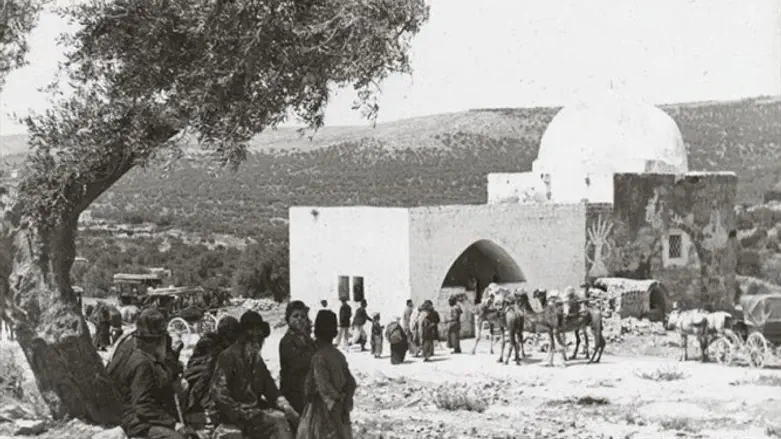
This past Shabbt we read Parshas Vayetze describing how the Patriarch Jacob, Yaakov Avinu,left Beer Sheva to escape from his brother Esau and journeyed to Charan (Mesopotamia, today Turkey).
On the way, Yaakov fell asleep and dreamt of a ladder connecting heaven and earth, with angels climbing and descending on it. God appeared and promised him that the land upon which he lay would be given to his descendants forever.
Yaakov traveled to Charan, where he lived with his uncle Lavan. He married Lavan's two daughters, Leah and Rachel. While Leah had children, Rachel was barren, but Yaakov loved Rachel who had been his first choice. Ultimately, Rachel would give birth to Yosef and Binyamin. But while still suffering from childlessness, she cried to her husband: Give me children, or I am dead. Yaakov replied in anger: Am I instead of God.....?"
The words in the Torah (Bereishis 30:1-2) are as follows
(1) And Rachel saw that she had not borne children to Yaakov, and Rachel envied her sister, and she said to Yaakov: Give me children and if not, I am going to die.
(2) And Yaakov became angry with Rachel and he said, "Am I instead of God, Who has withheld the fruit of the womb from you?"
*** *** *** ***
The Baal Akeidat Yitzchak explained that during the Creation of the world, the first woman was given two names:
Isha and Chava.
Each name represents a different purpose in a woman's life.
Woman's Role as Represented by the Name Isha
"She was called Isha (woman) for she was taken from Ish (man)." (Bereishis 2:23) And just like a man, a woman is endowed with intellect and spiritual powers to delve into intellectual pursuits and to do righteous deeds as did the Matriarchs, righteous women, and prophetesses.
[The woman's special roles] are expounded in [the poem] Eishes Chayil (A Woman of Valor) (Mishlei 31).
A woman's role as Isha is the same as a man's - which is to understand and advance in the intellectual and moral fields just as did our Matriachs and our righteous women throughout history.
Woman's Role is represented by the name Chava
A woman's second role as represented by the name Chava is childbirth and child rearing. Chava means "mother of all living." When a woman does not have children, she is prevented from fulfilling this purpose, but she remains able to fulfill her role of choosing and doing good in the world.
And it is said about both men and women who cannot have children: "And I will give them in My House and in My Walls, a place and a name, better than sons and daughters, an everlasting name which will not be discontinued (Isaiah 56:5).
For the primary offspring of tzadikim (righteous people) are their good deeds (Rashi, Noach 6:9)
That is why Yaakov was angry at Rachel, when she said, "Give me children and if not, I am as dead."
He wished to clarify to her that even though she did not have children, she had the role of "Isha" - fulfilling her role in developing her intellectual pursuits and doing good deeds in the world.
The source of the above is in the writings of Rabbi Isaac ben Moshe Arama (1420-1494) author of the Akeidat Yitzchak,. He was born in Spain and fled to Italy during the expulsion from Spain. He was a Talmudist and a philosopher. The Akeidat Yitzchak is a lengthy philosophical overview of the Torah. Based on this work, Rabbi Arama is frequently referred to as the "Baal Akeidah".
Jacob's anger was being directed at Rachel's forgetting a fundamental purpose of her existence, which, according to the Akeidat Yitzchak, is moral and intellectual growth. She, in her yearning for a child, saw her whole life circumscribed by motherhood. She felt that without a child, her life was not worth living . She lost the wider perspective of her role as "Isha" - her destiny and purpose imposed on her not in virtue of being a woman, but in virtue of being a human being.